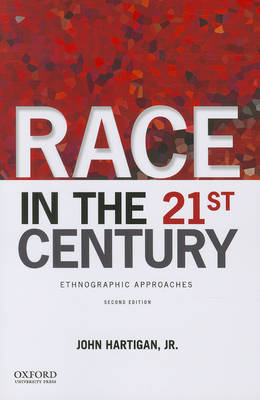
- Afhalen na 1 uur in een winkel met voorraad
- Gratis thuislevering in België vanaf € 30
- Ruim aanbod met 7 miljoen producten
- Afhalen na 1 uur in een winkel met voorraad
- Gratis thuislevering in België vanaf € 30
- Ruim aanbod met 7 miljoen producten
Zoeken
€ 128,95
+ 257 punten
Omschrijving
What is the state of race relations in the U.S.? Are we making progress toward ending racial discrimination and prejudice? What, exactly, does "race" mean? In Race in the 21st Century: Ethnographic Approaches, Second Edition, John Hartigan, Jr., takes an anthropological look at such questions by introducing students to the study of race through qualitative methods. In the first text to take an explicitly ethnographic approach, Hartigan summarizes and explains the current state of social science knowledge on race in the U.S., motivating students to think through essential questions about race in relation to their own lives. In contrast with many texts, Race in the 21st Century focuses not on essential differences between racial or ethnic groups, but rather on the commonalities. Hartigan concentrates on the particular contexts in which people actively engage and respond to racial meanings and identities. In this way, he encourages readers to think critically about the meaning of race. The second edition of Race in the 21st Century features a new chapter, "Postracial America," which examines contentious arguments about whether or how race still matters in the U.S. today. It engages students fully in the important question of what "postracial America" might mean or look like.
Specificaties
Betrokkenen
- Auteur(s):
- Uitgeverij:
Inhoud
- Aantal bladzijden:
- 272
- Taal:
- Engels
Eigenschappen
- Productcode (EAN):
- 9780199374373
- Verschijningsdatum:
- 28/07/2014
- Uitvoering:
- Paperback
- Formaat:
- Trade paperback (VS)
- Afmetingen:
- 170 mm x 236 mm
- Gewicht:
- 385 g

Alleen bij Standaard Boekhandel
+ 257 punten op je klantenkaart van Standaard Boekhandel
Beoordelingen
We publiceren alleen reviews die voldoen aan de voorwaarden voor reviews. Bekijk onze voorwaarden voor reviews.











